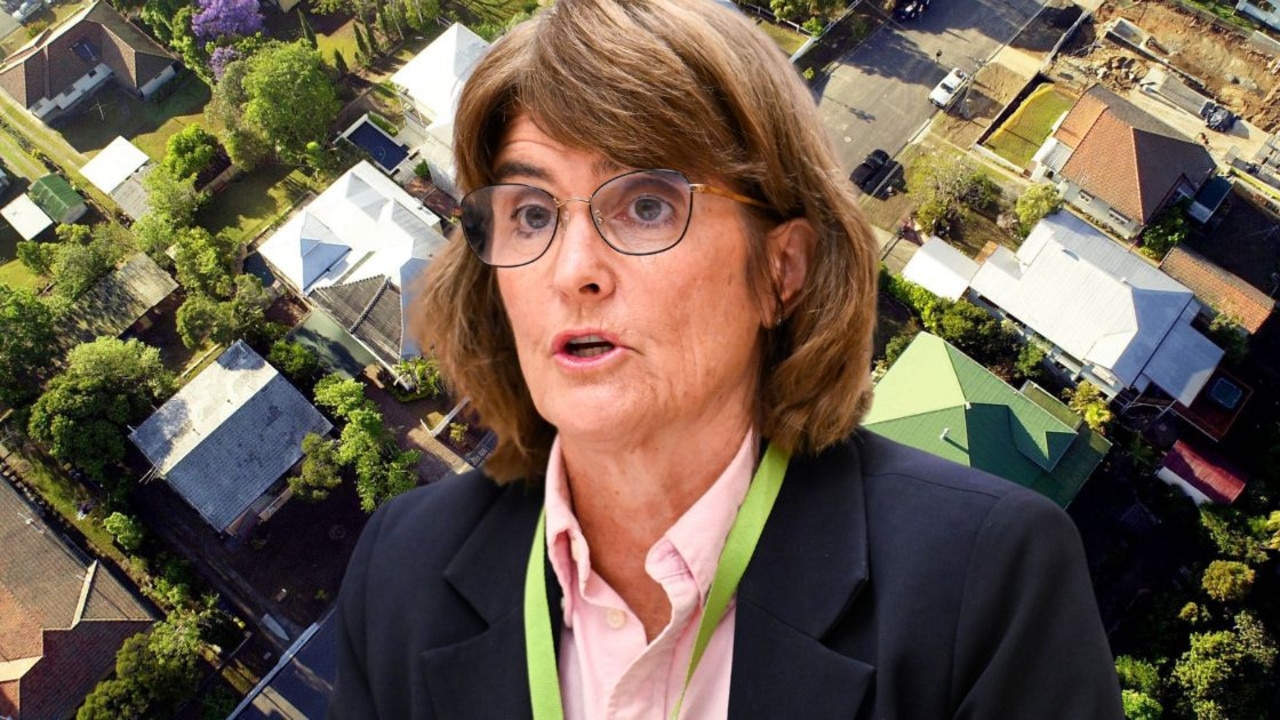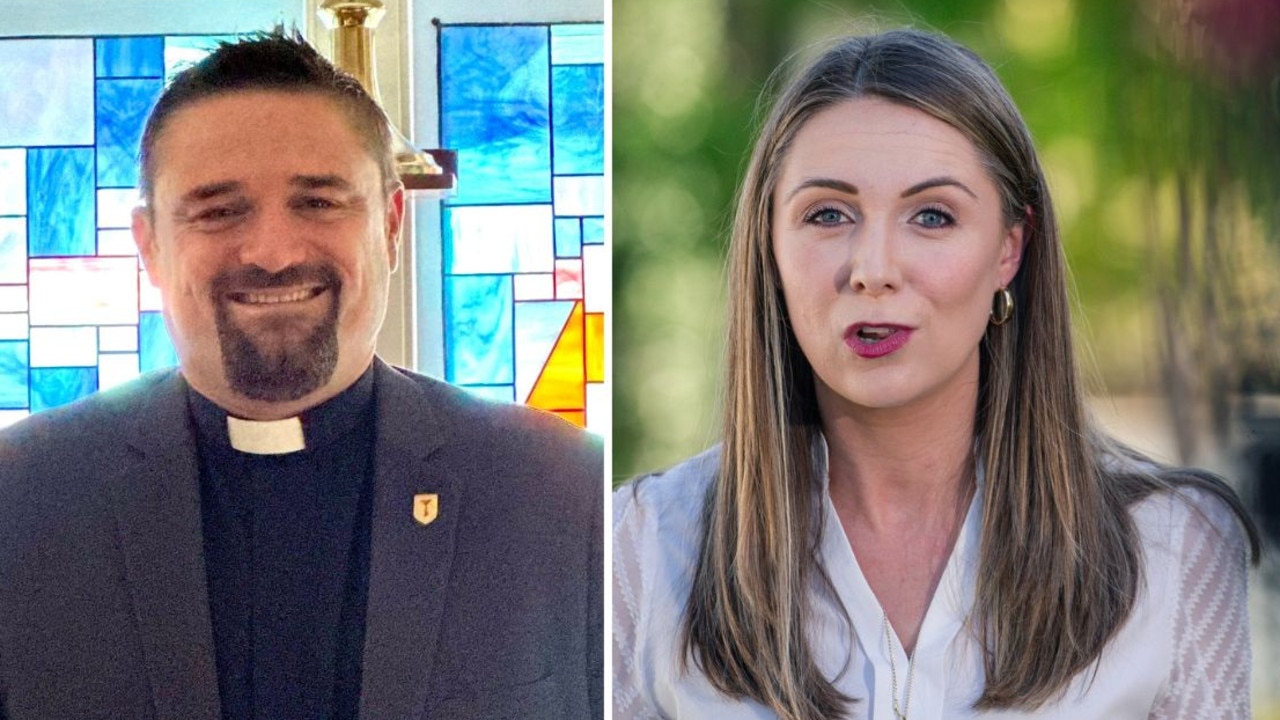How racing became sport of queens
Female jockeys have been breaking down barriers over the past decade, with women accounting for more than a third of the total jockey population in Queensland’s racing industry.
CM Insight
Don't miss out on the headlines from CM Insight. Followed categories will be added to My News.
RACING is one of the very few sports where females compete on level terms with males and as Michelle Payne’s historic Melbourne Cup victory showed, they are very much holding their own.
Payne is by no means a lone ranger. Jamie Kah, Katelyn Mallyon and Kathy O’Hara have ridden Group 1 winners in Melbourne and Sydney in recent times and Linda Meech is consistently one of the leading riders in Victoria. Last Saturday at Belmont in Perth, apprentice Jade McNaught rode six of the nine winners.
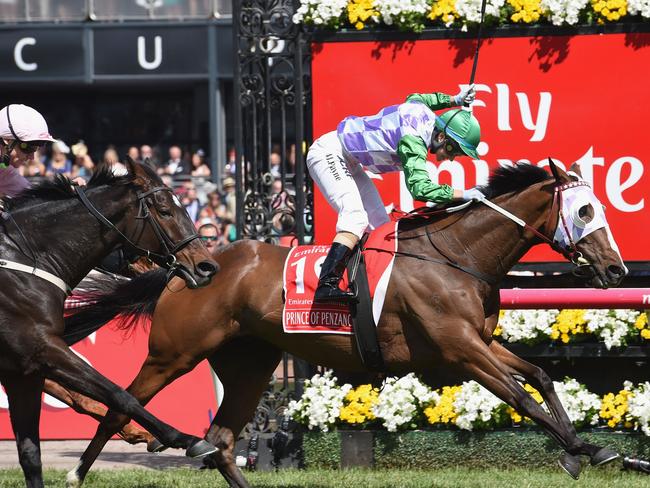
In Queensland, females now make up 39 per cent of the total jockey population — up from only 22 per cent a decade ago. Females now account for 59 per cent of all apprentice jockeys in Queensland, underlining the changing face of racing.
Tegan Harrison is a former champion Queensland apprentice, who finished in the top five jockeys in Brisbane four times between 2013 and 2016. She has ridden more than 600 winners and has placed at Group 1 level.
Rikki Palmer, nee Jamieson, was among the leading apprentices in the state during her formative years and has twice made comebacks after having children, now boasting a career tally of more than
160 wins.
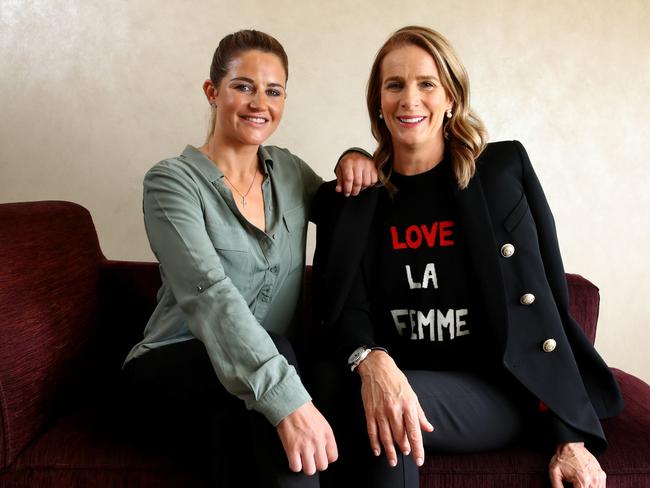
Stephanie Thornton forged a reputation in Victoria riding 140 winners, before relocating her indentures to Queensland, where she has quickly established herself as one of the leading apprentices in
the state.
The Courier-Mail’s Racing Editor Nathan Exelby spoke to the trio about their life as jockeys and what it’s like breaking down barriers in a sport that has traditionally been dominated by men.
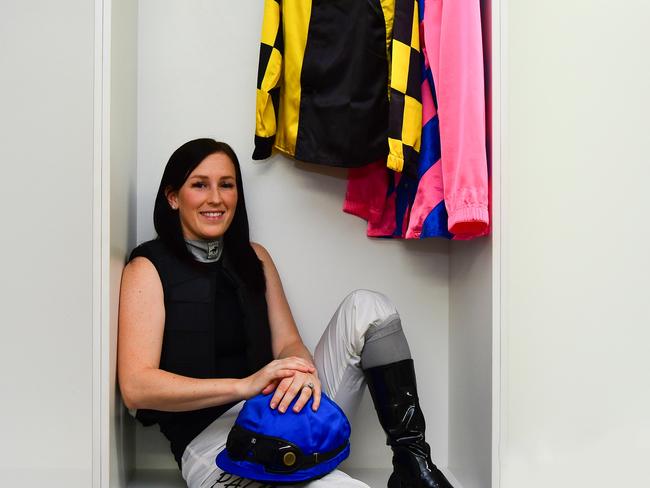
When Michelle Payne won the Melbourne Cup, what did it mean to you?
Tegan: “I remember it as clear as anything. Just the hype of Michelle riding in the race. Everyone in the (jockey) room was watching her. There’s still that doubt about female riders and many were waiting for her to fail and she really did go and show them how it’s done. I’ve been lucky enough to ride with Michelle during my career and she’s someone I’ve always looked up to and to watch her achieve that was thrilling for all of us.”
Stephanie: “I actually had my first race ride that day. Prior
to that I didn’t know
Michelle, but it was a pretty good day to kick off. I think it was just surprising, because it hadn’t happened before, it
was something no one had ever seen, so to see Michelle be the first to do it was fantastic.”
Rikki:“It was awesome. It was history made. It was going to happen one day and it was awesome that it was Michelle. It was just really cool.”
How have you found it being a woman in a man’s world?
Stephanie:“I honestly haven’t had a problem. I think it’s certainly a lot easier for women than it used to be in the past. I think it’s like anything. If you put almost a handicap on yourself, it makes everything harder, but if you can go out there and believe that you’re just as good, then why can’t you be?”
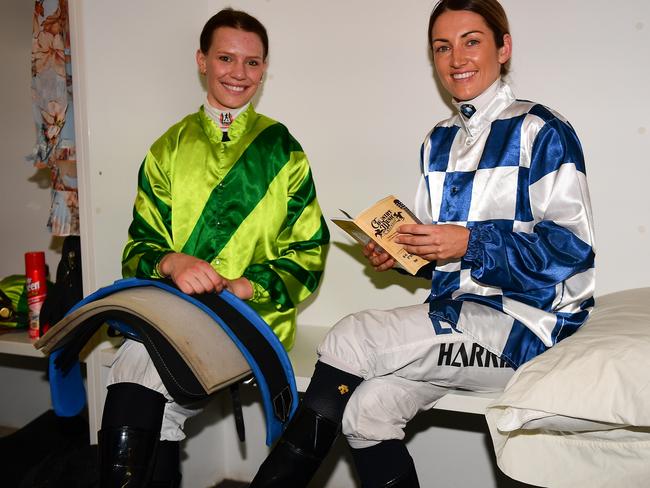
Tegan: “We are an industry of statistics and if you look at stats overall, we get limited opportunities in those races, yet a lot of us have succeeded at that level. To me that says we are just as good, but I still feel like our opportunities are a bit limited.”
Rikki: “Every other sport in the world, there’s a handicap for women. But in saying that, I wouldn’t like to be getting (a concession) because then it does make us seem weaker. I do think we are judged differently. There seems to be an excuse for males (when something goes wrong in a race) but for females the problem is us. You get your few trainers that appreciate and understand it and that it’s great you’re in the game with the boys, but they are very few.”
Stephanie: “For me personally, it’s not about who is stronger and who is better, it’s a case of ‘this is my job and this is what I am out here to do.’ You have to believe in yourself that you can get the job done, no matter who you are up against. It’s a topic the more you talk about it, the harder it is to overcome. Whereas if you go out there and let your riding speak for itself, well it makes a huge difference.”
Has the perception of female jockeys changed during your time riding?
Tegan: “I always go back to mum being a female rider and I know during her time it was very tough and they had to fend for themselves. We are getting more towards equal terms but we have a long way to go. Times have changed a lot and hopefully they continue to.”
Rikki: “It’s probably a lot harder to get rides now and have loyalty. If you ride one bad, that’s your one and only chance. It’s hard to get people who are loyal to you. It’s hard to get more than a handful of rides unless you are one of the top guys.”
What gave you the racing bug?
Stephanie: “My dad’s a trainer, my two older brothers are jockeys and there’s me too. I rode my first gallop when I was 14 years old and I was pretty set after that. It’s just the speed. It’s an adrenaline rush when you are out there and just being able to feel the sheer power of the animal underneath you, it’s almost addictive.”
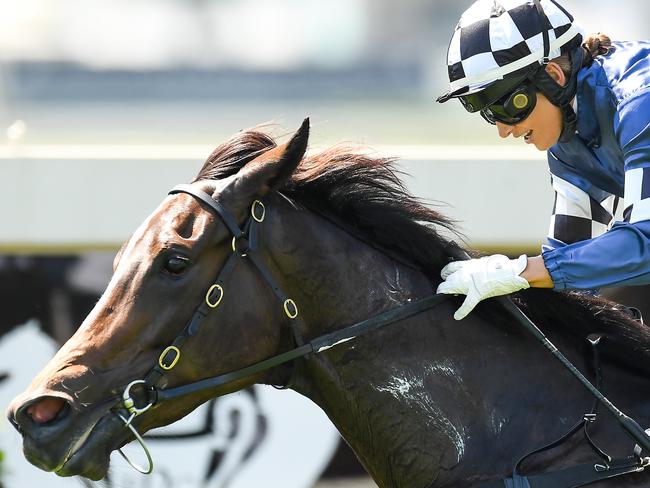
Do the falls you’ve had in your time play on your mind?
Tegan: “Not at all. When I broke my collarbone, I couldn’t get back on a horse. I was busting to get back on, but I wasn’t allowed to because my collarbone was broken. I had been home a week and thought I would sneak on a horse without anyone knowing and I half fell off it, so then I thought I had better wait! For some reason, it’s in your blood and if you’re a rider, you’re first thought is just wanting to get back on.”
It has been a tragic start to the season with the deaths of Mikaela Claridge and Melanie Tyndall. Do fatalities play on your mind?
Rikki:“It definitely hurts the heart thinking about their families and that it could possibly happen to you. But it’s not something that goes through your head when you’re riding. You wouldn’t
do it if you didn’t love it, because it is dangerous. But there are not a lot of falls that are fatal. It’s just unfortunate that it does happen.”
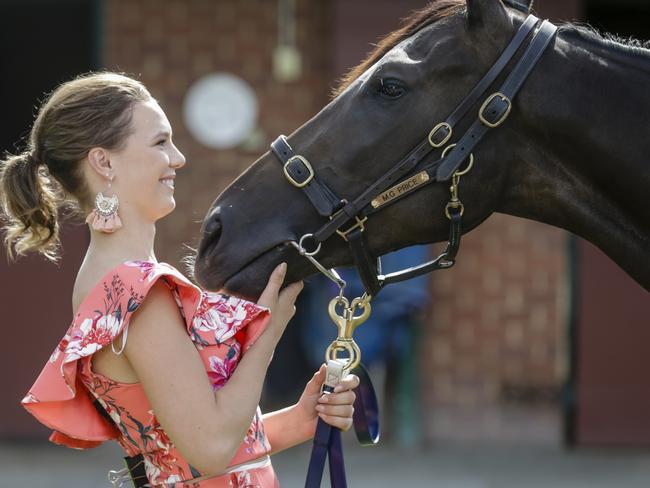
Rikki, being a mum and riding at the same time, was that something you envisaged when you started riding?
Rikki: “No. I always said to myself and to everybody that once I had kids that would be it, just because it’s so dangerous and that I didn’t want to put myself in that position when I had children. I don’t know what changed. It’s different now. I don’t feel like that now. I’m obviously not ready to give it away.”
Was it an easy decision to go back to riding?
Rikki: “No, it took a long time to come back after Maci (now two-and-a-half years old) because I was in the mind frame I wasn’t coming back. I think because I finished on a fall as well, it didn’t help. I just didn’t want to go back. But with (second child) Piper (now five months), I was going so well when I finished up — I rode 10 winners with her in my
belly — I was so not ready to hang my boots up. As soon as I had her, I was ready to come back. I went back when Maci was six months old, but I’d had two years all up (because of the fall).”
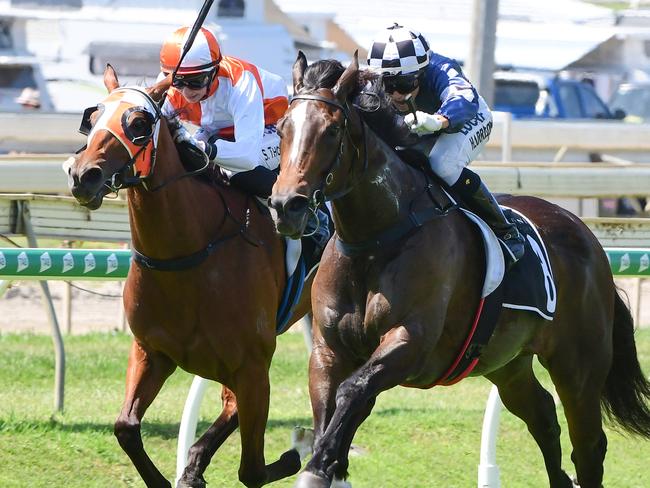
Is it different riding now?
Rikki: “You definitely have thoughts when things go wrong. When things happen like they have lately (with two fatalities last month), I think they make you question things. But when you are out there, you don’t think like that. It’s your job and you do it because you love it.
PAM’S PROWESS PAVED THE WAY
AS THE number of female jockeys competing in Australian races rapidly approaches 50 per cent, the woman who paved the way still marvels at how the landscape has changed in
40 years.
Pam O’Neill was a horse woman from the time she could walk, growing up in stables and being surrounded by horses every day. But she had to fight for nearly two decades to obtain a license to ride in races.
By that time, she was 34 and she wasn’t granted the “apprentice claim” that helps inexperienced riders compete with seniors.
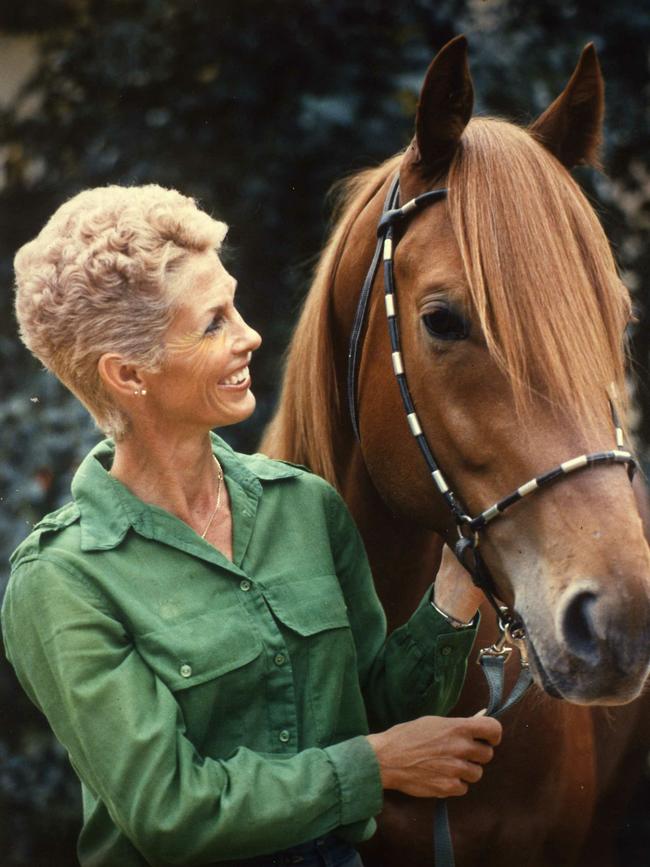
Instead, she was on level footing from the get go … and she rode a winning treble at her very first day in the saddle in 1979.
Australia’s first known female jockey was Wilhemena “Bill” Smith, who was born in 1886 and lived her life as a man to partake in professions at that time limited to only men, including race riding.
She rode in north Queensland and was known as “Girlie” Smith.
It wasn’t until O’Neill came along that the tide started to turn for women wanting to forge a career in race riding.
O’Neill was a lone soul in the female jockey ranks for many years — there was no such thing as female jockey rooms back then. At her first day she had to get changed in the first aid room.
Gradually the tide has turned, highlighted most glaringly when Michelle Payne won the 2015 Melbourne Cup on Prince Of Penzance.
O’Neill admits she never thought she would see the day where a woman would ride the winner of Australia’s most famous horserace.
“I didn’t think in my lifetime I would see a girl win a Melbourne Cup, because they weren’t getting the rides,” O’Neill said.
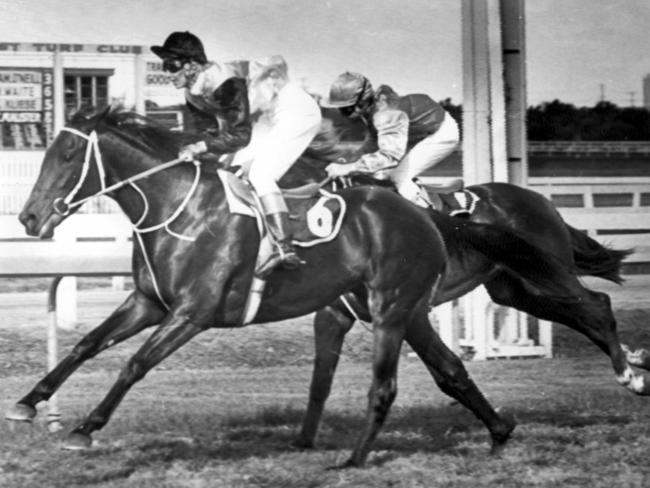
“You need a horse with ability to win the race and without that, you’ve got no hope. I love champion horses and I love people achieving things. I had a tear in my eye when I saw Michelle Payne go across the line.”
Now 74, she vividly remembers that first day at the Gold Coast.
“I was a bit nervous. I had shot my mouth off for years and all of a sudden the moment of truth came,” she said. “Fortunately it went well and when I won my first race, all the (male) jockeys were there to congratulate me.”
O’Neill, who ended up riding more than 400 winners, including a number in Japan, notes the riding ranks would be in trouble today if there were no females allowed.
“Without them they would be looking for jockeys. They wouldn’t have enough,” she said.
“But they have to remember it’s their ability that has to get them the rides. Whingeing is the worst thing they can do.
“You’re in the sport, you act professional and when you’re out there, you’re one of them.”
It’s something Michelle Payne can relate to, noting her time in the Melbourne Cup sun was the culmination of 25 years ambition and hard work.
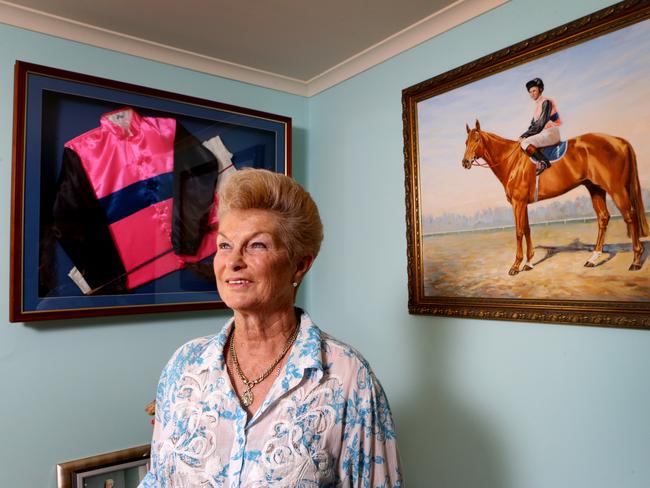
“I just felt like I was so ready that day. I had done
all the preparation I could. I left no stone unturned,” Payne told an audience
that previewed the movie Ride Like A Girl in Brisbane last week.
“I watched the last eight Melbourne Cups and noted where every runner that
won the race came from, where they were positioned, where they moved into the race, where the race was won and lost. I knew ‘Prince’ so well, I had ridden him in 23 of his 24 starts, so it was an eerie feeling to be going into the biggest race in Australia, the race I wanted to win the most from five years old and I was actually unbelievably confident and calm.
“When we went over that finishing line it was the most incredible feeling you could ever imagine. Twenty-five years of praying I would one day get a chance in the Melbourne Cup.
“I shook my head and thought ‘it happened’. It was a moment of feeling proud and relief I did the job for those owners.”

